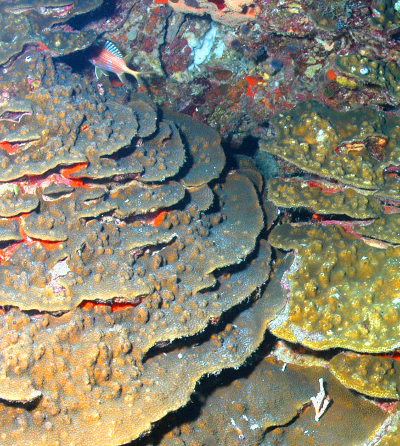Reef review finds past risks
 Research looking at the ancient history of the Great Barrier Reef has some warnings for the future.
Research looking at the ancient history of the Great Barrier Reef has some warnings for the future.
The study suggests the reef almost drowned due to rapid sea-level rise from melting glaciers and polar ice sheets during the Last Interglacial period over 125,000 years ago – something that may be important in a time of increased climate variability.
But the study also showed the reef to be resilient with shallow reef growth recommencing once the rapid sea-level rise stabilised.
Geologists consider the Last Interglacial to be an important comparative period because temperatures and sea levels were higher than now but similar to where the Earth might be headed if CO2 emissions remain unchecked.
Lead author Dr Belinda Dechnik from the University of Sydney undertook the research, which included analysis of unexposed reef now up to 40 metres below sea-level.
“This provides the first snapshot of this paleo-reef against a background of rapid environmental change, including possible mass ice-sheet collapse,” Dr Dechnik said.
The research also provided an accurate identification of the age of the fossil reef that grew before the modern reef, some 129,000-121,000 years ago.
The Great Barrier Reef like a sponge cake, with the modern reefs visible today being stacked on top of their ancient predecessors.
To study the ancient layers, researchers analysed specimens from the 1970s and new core samples taken in 2015.
This gave new details on the climate-change impacts in the past.
Dr Dechnik said it was expected that the rate of future sea-level rises resulting from climate change may not be as extreme as experienced previously but it could still be significant.
In addition, it was expected that sea levels on the Great Barrier Reef could get as high as six metres – the same level as during the Last Interglacial – depending on the trajectory of mass ice sheet collapse.
“The findings highlight the importance of increasing the reef’s resilience now,” Dr Dechnik said.
“In combination with climate change predictions by the Intergovernmental Panel on Climate Change and in the absence of improvements to reef management and human impacts, sea-level pressures could tip the reef over the edge, potentially drowning it for good,” Dr Dechnik said.
The research has been published in Global and Planetary Change.







 Print
Print